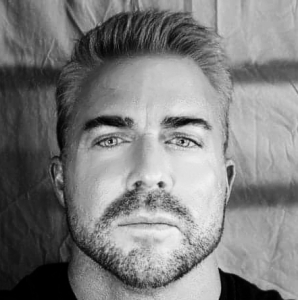Cleveland Cavaliers vs. Houston Rockets
The Cleveland Cavaliers, with a season record of 42-24, face the Houston Rockets, who stand at 31-35. Cleveland is favored by 4 1/2 points with an Over/Under of 215. The Cavaliers have been performing solidly, with an offensive rating of 113.8 and a defensive rating of 109.4. They have a positive point differential of 4.4 and a Bet Rating of 1.50. Houston, on the other hand, has been struggling with a point differential of 0.6 and a Bet Rating of 1.26.
Cleveland’s recent trends show a 30-35-1 ATS record and a 47.9% field goal percentage. Houston has a 30-36-0 ATS record and a 45.8% field goal percentage. Cleveland has the advantage statistically, both offensively and defensively.
Betting Summary: Considering Cleveland’s stronger statistical performance and being favored by 4 1/2 points, betting on the Cavaliers to cover seems reasonable. The Over/Under is close to the mark, so it might be safer to pass on this aspect of the bet.
Charlotte Hornets vs. Philadelphia 76ers
The struggling Charlotte Hornets (17-50) take on the Philadelphia 76ers (36-30), who are favored by 10 1/2 points. The Over/Under is set at 209. Philadelphia boasts a solid offensive rating of 115.2 and a Bet Rating of 1.41, while Charlotte struggles with a negative point differential and a Bet Rating of 1.21.
Charlotte has been struggling with a 27-38-2 ATS record, while Philadelphia holds a more respectable 34-31-1 ATS record. Philadelphia also has a higher field goal percentage and a stronger defensive game.
Betting Summary: Given Philadelphia’s strong performance and the significant point spread, betting on the 76ers to cover seems favorable. The Over/Under is relatively low, so betting on the Under might be a reasonable option.
Portland Trail Blazers vs. New Orleans Pelicans
Portland Trail Blazers (19-47) face the New Orleans Pelicans (40-26), with New Orleans being heavily favored by 13 points. The Over/Under is set at 214. New Orleans holds a strong offensive rating of 116.0 and a Bet Rating of 1.41, while Portland struggles defensively with a Bet Rating of 1.13.
Portland has been inconsistent with a 30-33-3 ATS record, while New Orleans holds a more favorable 28-37-1 ATS record. New Orleans also has a higher field goal percentage and a stronger three-point shooting game.
Betting Summary: Given New Orleans’ dominance statistically and the hefty point spread, betting on the Pelicans to cover seems reasonable. The Over/Under is close to the mark, so it might be safer to pass on this aspect of the bet.
Brooklyn Nets vs. Indiana Pacers
The Brooklyn Nets (26-40) face the Indiana Pacers (37-31), with the Pacers being favored by 8 1/2 points. The Over/Under is set at 228. Brooklyn has a Bet Rating of 1.34, while Indiana boasts a Bet Rating of 1.39.
Brooklyn has struggled defensively with a negative point differential, while Indiana has shown a more balanced performance. Indiana also holds a better ATS record at 37-31-0 compared to Brooklyn’s 30-34-2.
Betting Summary: Given Indiana’s stronger statistical performance and the point spread, betting on the Pacers to cover seems reasonable. The Over/Under is relatively high, so betting on the Under might be a reasonable option.
Oklahoma City Thunder vs. Memphis Grizzlies
The Oklahoma City Thunder (46-20) take on the Memphis Grizzlies (23-44), with Oklahoma City being favored by 10 1/2 points. The Over/Under is set at 218 1/2. Oklahoma City holds a strong offensive rating of 120.8 and a Bet Rating of 1.39, while Memphis struggles defensively with a negative point differential and a Bet Rating of 1.27.
Oklahoma City has a strong ATS record at 39-26-1, while Memphis has been less consistent at 31-36-0. Oklahoma City also boasts a higher field goal percentage and a better three-point shooting game.
Betting Summary: Given Oklahoma City’s dominance statistically and the significant point spread, betting on the Thunder to cover seems favorable. The Over/Under is relatively high, so betting on the Under might be a reasonable option.
Washington Wizards vs. Chicago Bulls
The struggling Washington Wizards (11-55) take on the Chicago Bulls (32-35), with the Bulls being heavily favored by 10 points. The Over/Under is set at 225 1/2. Washington struggles both offensively and defensively, while Chicago holds a more balanced performance.
Washington has a dismal ATS record at 31-34-1, while Chicago has a slightly better record at 33-33-0. Chicago also boasts a higher field goal percentage and a stronger three-point shooting game.
Betting Summary: Given Chicago’s stronger statistical performance and the hefty point spread, betting on the Bulls to cover seems reasonable. The Over/Under is relatively high, so betting on the Under might be a reasonable option.
Golden State Warriors vs. Los Angeles Lakers
The Golden State Warriors (34-31) face the Los Angeles Lakers (37-31), with the Lakers being favored by 2 points. The Over/Under is set at 233 1/2. Both teams have shown balanced performances statistically, with the Lakers holding a slight advantage.
Golden State has a Bet Rating of 1.36, while the Lakers hold a higher Bet Rating of 1.59. The Lakers also have a slightly better ATS record at 37-30-1 compared to Golden State’s 32-33-0.
Betting Summary: Given the relatively close matchup and the slight point spread favoring the Lakers, betting on the Warriors to cover seems reasonable.
Minnesota Timberwolves vs. Utah Jazz
The Minnesota Timberwolves (45-21) take on the Utah Jazz (29-37), with Minnesota being favored by 8 1/2 points. The Over/Under is set at 223. Minnesota holds a strong offensive rating of 113.2 and a Bet Rating of 1.63, while Utah struggles defensively with a negative point differential and a Bet Rating of 1.20.
Minnesota has a strong ATS record at 32-31-3, while Utah has struggled at 36-29-1. Minnesota also boasts a higher field goal percentage and a stronger three-point shooting game.
Betting Summary: Given Minnesota’s dominance statistically and the significant point spread, betting on the Timberwolves to cover seems favorable. The Over/Under is relatively high, so betting on the Under might be a reasonable option.
New York Knicks vs. Sacramento Kings
The New York Knicks (39-27) face the Sacramento Kings (38-27), with the Kings being favored by 3 1/2 points. The Over/Under is set at 218. New York has shown a balanced performance statistically, with a Bet Rating of 1.45, while Sacramento holds a slightly higher Bet Rating of 1.46.
New York has a better ATS record at 24-40-2 compared to Sacramento’s 33-30-2. However, Sacramento boasts a higher field goal percentage and a better free-throw shooting game.
Betting Summary: Given Sacramento’s slightly stronger statistical performance and the modest point spread, betting on the Kings to cover seems reasonable. The Over/Under is relatively low, so betting on the Under might be a reasonable option.
These betting summaries are based on the teams’ recent performance statistics, point differentials, ATS records, and other relevant factors outlined in the provided data. It’s essential to consider the trends and matchups before making any betting decisions.
RECORD: 9-5 (updated 3/17/24).










